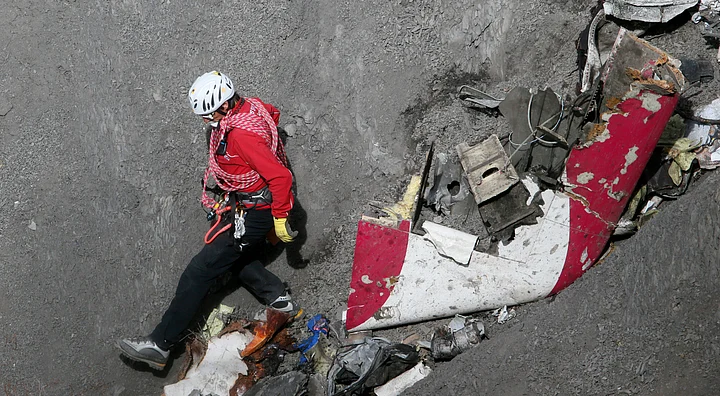The profile that has emerged of Germanwings co-pilot Andreas Lubitz has become more troubling by the day.
In the hours after Flight 9525 crashed in the French Alps two weeks ago, Andreas Lubitz was regarded as one of 150 victims in an unexplained disaster. Two days later he was the prime suspect of an unfathomable act.
By now, French and German prosecutors have little doubt that the 27-year-old intentionally slammed the Airbus A320 into a mountain, killing everyone on board, and there is growing evidence that his actions weren’t just the result of a split-second decision but of days of planning.
The revelations have raised questions about who knew what, when, and whether he could have been stopped, and have prompted particular soul-searching in Germany.
Seventy-two of those killed onboard the flight, travelling from Barcelona to Duesseldorf, were German citizens.
Investigators have pieced together the picture of Lubitz by analysing the voice and flight data recorders found at the crash site, searching his homes in Duesseldorf and Montabaur, and by interviewing friends, relatives, colleagues and doctors.
Medical records show that before he received his pilot’s license, Lubitz suffered from depression, with doctors recording “suicidal tendencies.”
It forced him to take a break of several months from his pilot training. Lufthansa has said Lubitz informed the airline’s flight school when he returned in 2009 that he had experienced an episode of “severe depression.”
But Germanwings, the Lufthansa subsidiary Lubitz joined in 2013, said it was unaware of this. Both airlines say Lubitz passed all medical tests and was cleared by doctors as fit to fly on the day of the disaster.
In the months before the crash Lubitz sought help from several doctors, including specialists at Duesseldorf’s University Hospital. The hospital declined to confirm reports that Lubitz was experiencing vision problems, but said he had come in for tests.
Duesseldorf prosecutors say there was no evidence the co-pilot had any physical ailments.
In the week leading up to the crash Lubitz spent time online researching suicide methods and cockpit door security.
Safety rules introduced after the September 11, 2001, terror attacks in the United States allow someone in the cockpit to deny others entry.
Shortly after takeoff from Barcelona on March 24, Lubitz offered to take over the controls while the pilot went to the toilet. Finding himself unable to enter the cockpit on his return, the pilot pleaded with Lubitz to let him back in, to no avail.
